- Home
- Aharon Appelfeld
Adam and Thomas Page 3
Adam and Thomas Read online
Page 3
Thomas, who was standing at the side all the time, didn’t join in Adam’s efforts to get that pretty, thin creature to talk. He asked bashfully, “Can I touch him?”
“Of course. He came to visit both of us.”
Thomas drew close to the dog, stroked him, and said, “My name is Thomas.” Then he withdrew, pleased he had overcome his fear.
“Talk to him some more,” Adam encouraged him.
“What should I say to him?”
“Ask him where he came to us from.”
“It’s hard for me to talk to him. I’m not used to talking to dogs.”
“In a day or two you’ll learn how to talk to animals. It’s not hard.”
Adam patted the dog again. Filled with pleasure and trust, the dog sat down and closed its eyes.
“We’re going to be good friends,” Adam said, hugging the dog. The dog shook himself and stood up. Adam kept trying to talk him into staying. “We’ll love you and treat you well.”
The dog looked at him with his big eyes, and it was evident that his patience was wearing out. Adam took a sugar cube out of his pocket and brought it to the dog’s mouth. The dog smelled it and swallowed the sugar. Thomas and Adam stood tensely and watched the dog’s expressions. The dog stood there for a while and finally slipped out of Adam’s arms and went on his way.
Adam wanted to run after him, but when he saw that the dog was running hard, he called out, “Don’t forget to come back to visit us. We’re expecting you.” He waited for the dog to turn his head back to him, but when he didn’t, Adam stood still and followed him with his eyes as he went away.
The dog apparently knew its way and disappeared. Adam stood still, stunned.
“What’s the matter, Adam?” Thomas was alarmed.
“The dog left part of himself with us,” said Adam.
“I don’t understand you, Adam. You have to explain to me.”
“When animals go away, they leave part of themselves with you.”
“Do you really feel it, or are you imagining it?” “I feel it in my hand or my knees, and sometimes in my whole body.”
“Strange,” said Thomas. “Anyway, you spoke to the dog in a very natural way. How did you learn how to talk to dogs?”
“From Miro, our dog.”
“Do you talk to him the way you talked to the dog that came to visit us?”
“I talk to Miro like a friend.”
“Do you understand him, or does it just seem like it?”
“I understand him, and he understands me.” Adam didn’t get confused.
“Still, dogs aren’t in the human family.” Thomas spoke in his father’s voice.
“Miro is part of our family. Mom and Dad understand him even better than I do.”
“Strange.”
“What’s so strange?”
“I guess I’ll never know how to talk to a dog.”
“Don’t worry, Thomas. The forest will teach you.”
When he heard Adam’s words, Thomas smiled and was about to say, Can you learn everything? Some people learn arithmetic easily, and some people learn how to draw easily. Not everyone knows how to learn everything. But for some reason he stopped himself and didn’t say it.
Light filled the forest. From a distance, mooing, the neighing of horses, and barking could be heard. The sounds reminded Adam of the long excursions he had made with his parents in the Carpathian Mountains, the low wooden houses, the green meadows spotted with cows, sheep, and horses. At noon they used to enter a roadside tavern, order a corn pudding filled with cherries. For dessert—a cup of ice cream.
Thomas dreamed a strange dream that night. He and his mother were standing at the door of their house. Suddenly his father appeared from a side entrance, and he was short and skinny. His back was bent. It was hard to recognize him.
“What happened?” his mother called out in surprise.
When he heard her voice, his father’s face beamed, and he said, “They made us work and starved us from morning to night, but they didn’t break our spirits. We studied whenever we could. I taught a class in history, and my friend Herman taught one in literature. We didn’t have books, but our memories didn’t betray us.”
While he was talking, he collapsed and passed out. Thomas and his mother ran over to him, knelt down, and poured water on his face.
Chapter 11
That same morning, a squirrel came to visit them. Adam knelt and asked, “How are you, squirrel?” The squirrel hopped and raised its body upright. Its chatter said, You’re new in the forest, aren’t you?
Adam offered it pieces of the sandwich he was eating. The squirrel was cautious, sniffed, tasted, hopped away, and kept nibbling at the bread.
After finishing the crumbs, the squirrel moved away, bowed once to the right and once to the left, and returned to its tree.
“I noticed,” said Thomas, “that some of the squirrel’s movements are like people’s. Am I mistaken?”
“You’re not mistaken. We have more in common with animals than we have differences,” said Adam, pleased with his own words.
“Anyway, you talked to the squirrel the way one person talks to his fellow,” said Thomas.
Adam chuckled. “I’ve never heard a child say ‘the way one person talks to his fellow.’”
“My parents say ‘the way one person talks to his fellow.’ Is that incorrect?” Thomas asked.
They ate breakfast and for dessert they ate some of the cherries they had set aside for a long day full of sun.
“Isn’t it strange that we’re living in the forest without parents and without friends? What harm did we do? I have the feeling that it’s a punishment. It’s not clear to me who’s punishing us, or for what.” Thomas spoke quickly, without stopping between the words.
“We’re Jews,” said Adam, as though it were self-evident.
“What harm did the Jews do to deserve punishment?” Thomas didn’t let up.
“People don’t like Jews.”
“Are we different from other people?” Thomas was puzzled.
“Apparently.”
“I don’t see any difference between Jews and non-Jews,” Thomas insisted.
Adam got impatient, and he said, “The Jews have always suffered.”
“Why?”
“It’s a riddle,” said Adam, surprising Thomas.
“There have to be reasons.” Thomas spoke like his father, the teacher.
“We won’t solve that problem today.” Adam also spoke like his father. “Let’s take a look around the forest. I know it well. Sitting for too long gives you bad thoughts.”
“Shouldn’t I think?” Thomas jumped up.
“You don’t have to think all the time.”
“My father wouldn’t agree with that,” said Thomas.
While they were walking around, wonders appeared before their eyes. First they met a lilac bush in full bloom with its violet flowers. Adam walked up to the bush, picked a small branch, and put it to his nose. “A marvelous smell, like the bush we have in our garden.”
“I thought that lilacs only grew in gardens,” Thomas commented.
“Lilacs grow in well-lit places in the forest,” said Adam, glad to have remembered his mother’s words.
Thomas turned his face toward him. Again he was surprised by Adam’s capability.
Not far from the lilacs a wild rose bush grew.
“The forest isn’t monotonous,” said Thomas in a grown-up way.
They went in deeper and saw more wonders. Suddenly Thomas was frightened and said, “I think something happened to Mom. There’s a reason why she didn’t come on time. Can we go back to our tree now? Is it far?”
“It’s not far. We’ll be next to it in ten minutes,” Adam reassured him.
So it was. In a few minutes they were standi
ng next to their tree, and Thomas was relieved.
Chapter 12
But the night was not quiet. First they heard the footsteps of someone fleeing, then shots echoed. Adam and Thomas lay tensely in the nest and listened.
After midnight there was silence, but Adam and Thomas didn’t stick their heads out of the nest. They kept listening, and Adam said, “We’ll have to find ourselves a more secure hideout. Deeper in the forest the foliage is thicker.”
“I feel bad about our nest,” said Thomas.
“The nest we’ll build will be better.”
“When will we move out?”
“Before sunrise. But first let’s eat something. My sandwich is very good.”
“Mine, too. Too bad it’s our last sandwich. We weren’t provident.”
“Being provident wouldn’t have helped us. In a couple of days we’d have finished the last sandwich.”
“You’re right,” Thomas agreed.
They sat for a while, silent and listening intently. Finally Adam said, “Let’s go down,” and he quickly slid down the tree. Thomas threw down the two backpacks and the blankets, and Adam helped Thomas come down the tree.
After an hour of pushing through the thick underbrush, they stopped and stood next to a tree whose top was like the one where they had built their nest.
“Hooray, Adam. This is a splendid tree,” said Thomas as he took off his backpack.
“Once I went by this tree with Mom and Dad. Even then it made an impression on me. I didn’t imagine that it would be our new nest,” said Adam.
Without delay they started breaking off branches and twigs and collecting them. Adam climbed up to the treetop, and Thomas handed him the branches and twigs they had gathered. They found that the new treetop was thicker and wider than the other one. Adam, who was experienced in nest building by now, did it quickly this time.
Thomas asked, “More branches?”
“A few more.”
Then they took the backpacks up. Thomas climbed up and got scratched.
“Don’t worry, Thomas. I have a bandage and iodine in my backpack.”
The wound was bleeding, but Thomas didn’t complain.
“You did everything like an experienced forester,” Adam said as he bandaged Thomas’s arm. “Now you’ll have a scar, and it will show that you climbed tall trees.”
The first lights shone on the treetops, but Adam and Thomas were in no hurry to go down. They surveyed the forest and listened to the noises.
“How’s your wound, Thomas?”
“It hurts, but it’s not too bad.”
They crouched and kept looking and listening. There were still some candies in Thomas’s backpack. They sucked them and quieted their hunger. Around noontime, when their hunger increased, they slid down the tree and started searching.
They didn’t find any water, but they did find a berry patch and started picking right away. The berries were small and particularly tasty.
They sat at the foot of a tree and looked around. Suddenly Adam knelt down, put his ear to the ground, and called out loud, “I hear the murmuring of water.”
They made a trail and stopped to listen from time to time. In a little while they found a flowing stream.
Thus another day passed. Thomas was less worried. They both were busy improving the nest and finding raspberries and blueberries, and going back to the cherry tree. They even found an apple tree. The apples were sour, but they weren’t tasteless.
But hunger didn’t stop plaguing them. They yearned for bread and soup, for all the foods their mothers made. Adam, who usually didn’t dream, dreamed that his mother was standing in the kitchen and making a sandwich for him. “I was so hungry that I grabbed the sandwich from Mom’s hands. Suddenly I was ashamed and begged her pardon. Mom wasn’t angry. She looked at me with tears in her eyes and said, ‘No wonder you’re hungry.’ I bit into the sandwich and ate it with an appetite. In my dream I ate a whole sandwich, but now I’m hungry,” Adam said, laughing.
Thomas was so hungry he was dreaming while awake. He muttered and put his hand over his eyes as if he was dazzled.
“What do you see, Thomas?” Adam asked.
“I see Mom carrying a big tray of food in a pot.”
“Is she coming close to you?”
“She comes close and moves away and makes me dizzy.”
“I’d suggest that you take your hands away from your eyes.”
“I’ll fall down.”
“Let’s eat some cherries.”
“I’m afraid. The cherries will give me diarrhea.”
“So come and drink some water. Water never does any harm.”
Thomas took his hands away from his eyes and said, “Sorry, Adam. Hunger is deceiving me, and I have a stomachache.”
“Thomas, don’t worry. We’ll do whatever is possible and even the impossible, and we’ll produce bread from the earth,” said Adam, and for a moment he managed to make Thomas laugh.
The nights were cold, and two sweaters and coats didn’t keep them warm enough. In Adam’s opinion they had no alternative but to go deeper into the forest. “That’s the only place where we’ll be able to light a campfire and get warm,” he said.
Thomas observed Adam, listened to him, and repeated to himself, Adam has practical sense. He’s an excellent guide.
While they were on their way to the stream to wash their faces and drink, Adam spied an old peasant sheepskin cloak in the distance. He went over and picked it up. The coat was old and worn, but it was still in one piece.
“It’s a miracle,” Adam called out.
“Finding an old cloak is a miracle?” Thomas wondered.
“There’s no other word for it,” said Adam. “In any case, somebody is thinking about us.”
“Do you mean that God is thinking about us?”
“I guess so,” said Adam, stunning Thomas even more.
That night rain fell. But Adam and Thomas didn’t get wet. The raindrops rolled off the coat they had found.
“We’re lucky,” said Thomas.
Adam wanted to say, It isn’t a matter of luck, but he wasn’t sure whether it was right to say that.
Toward the end of the night they heard the footsteps of someone running away, but there were no shots. “We can’t keep hiding this way, when people are in danger,” said Adam. “We’ll have to go down and help.”
“How can we help?” asked Thomas.
“We can prepare a thermos bottle of water, iodine, and some fruit. If we see someone trip and fall, we can go down and help him.”
This time Thomas wasn’t put off by the new task. He said, “Studying is important, but helping people in trouble is more important.”
Adam listened carefully to the sentence thatThomas spoke, and he knew: Thomas was trying with all his might. In a little while he’d overcome his fear.
Chapter 13
The surprises came one after the other. They kept on exploring the forest and found a small pool full of water plants. “This is where the frogs we hear at night live,” said Adam excitedly.
Adam was happy every time they discovered something. Thomas was still reserved. Still fearful. In the depth of his heart he was still thinking about his parents and his house, and when he didn’t think about them, dreams came at night and showed them to him.
Nevertheless Thomas wasn’t the same Thomas whom Adam had first met in the forest. He was still fearful. But he climbed the tree without help. Also, when he climbed down from the tree, he did it more steadily.
They ate raspberries and blueberries as well as an apple or two, but that good fruit wasn’t filling. Hunger made them dizzy. They sat next to the stream, and from time to time they’d drink some water.
Are we going to die of hunger? Thomas’s eyes asked.
Adam looked at him with friendship a
nd said, “The forest has a lot more gifts to make us happy. Gradually we’ll discover them. If we’re alert and diligent, we’ll find them. Just a few days ago we found a cloak to protect us.”
But what will happen in the meantime, until we find the gifts? Thomas’s eyes asked once again.
“Thomas, we have to get used to the food of the forest. True, it’s different from the food we had at home, it’s not easy to get used to new food, but we’ll do it.”
“You’re a boy who believes,” Thomas surprised Adam. “You don’t get discouraged easily. I keep asking myself: Why am I here? Why have I been punished? That’s probably wrong of me.”
“You can correct mistakes. If we don’t think about the past, but if we think about what we have to do, our mood will improve.”
Thomas listened carefully to Adam’s words and asked, “Who did you learn that practical way of thinking from?”
“From Mom and Dad. I also love to hear my grandparents. They always tell me useful things. When I’m sad, Grandma tells me: ‘Things to make you happy will come your way. You mustn’t be too sad. You have to accept what’s good and what’s not so good, because everything comes from God.’”
Thomas meant to ask how we can know that everything comes from God, but hunger made him tired, and he fell asleep.
That night Thomas awoke from a bad dream and sat up, stunned.
“What’s the matter, Thomas?” Adam asked gently. “I had a bad dream, and it’s hard for me to shake it off.”
“What did you see? Tell me.” “I’m hesitant to tell you.”
“Was it a clear dream, or a mixed-up one?” “It was a clear dream, but painful.”
“Tell me. You’ll feel better.”
“I dreamed I was in school, during recess. Suddenly the children stood up and told me I was going to be punished. ‘Why? What harm did I do?’ I asked, and my body was trembling. Everybody fixed me with their eyes and said, ‘We’re tired of you. Your constant excellence not only makes us angry, it’s unbearable.’ ‘I’m prepared to give up the excellence,’ I told them. ‘You already promised that once,’ the main bully said. ‘We don’t believe you anymore.’ ‘What can I do to make you believe me?’ ‘We decided to whip you. Lie down on that chair.’ ‘If you want to hit me, hit me, but I won’t lie on that chair.’ Hearing my words, they all burst out in hard laughter and slipped their leather belts from their pants. They whipped me hard, and it was painful. It’s a good thing I woke up.”

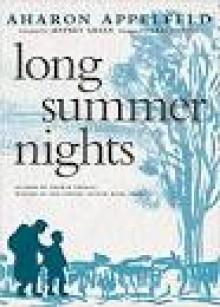 Long Summer Nights
Long Summer Nights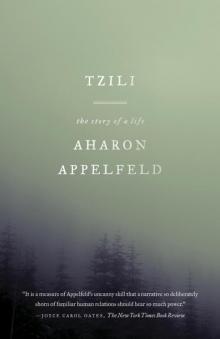 Tzili
Tzili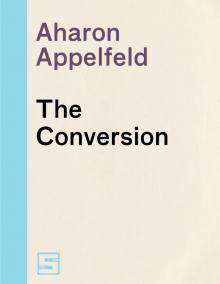 The Conversion
The Conversion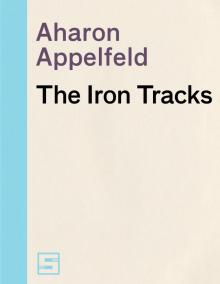 The Iron Tracks
The Iron Tracks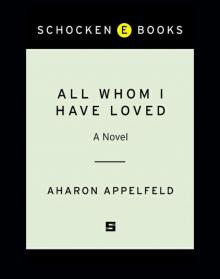 All Whom I Have Loved
All Whom I Have Loved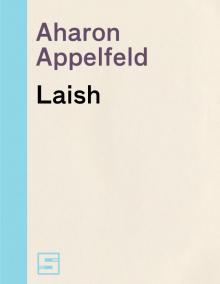 Laish
Laish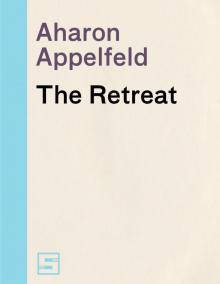 The Retreat
The Retreat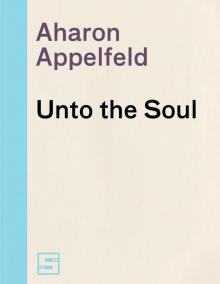 Unto the Soul
Unto the Soul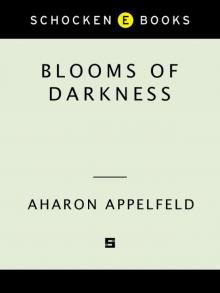 Blooms of Darkness
Blooms of Darkness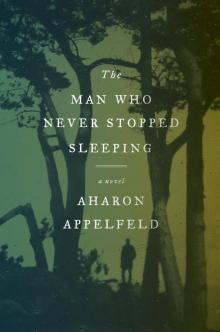 The Man Who Never Stopped Sleeping
The Man Who Never Stopped Sleeping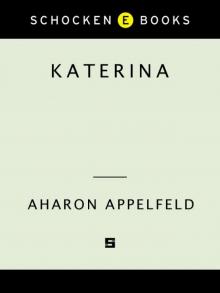 Katerina
Katerina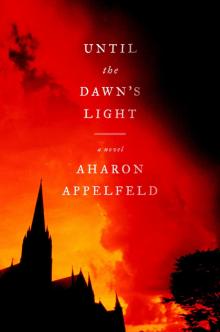 Until the Dawn's Light
Until the Dawn's Light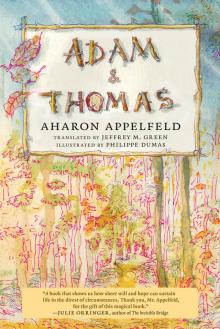 Adam and Thomas
Adam and Thomas Suddenly, Love
Suddenly, Love